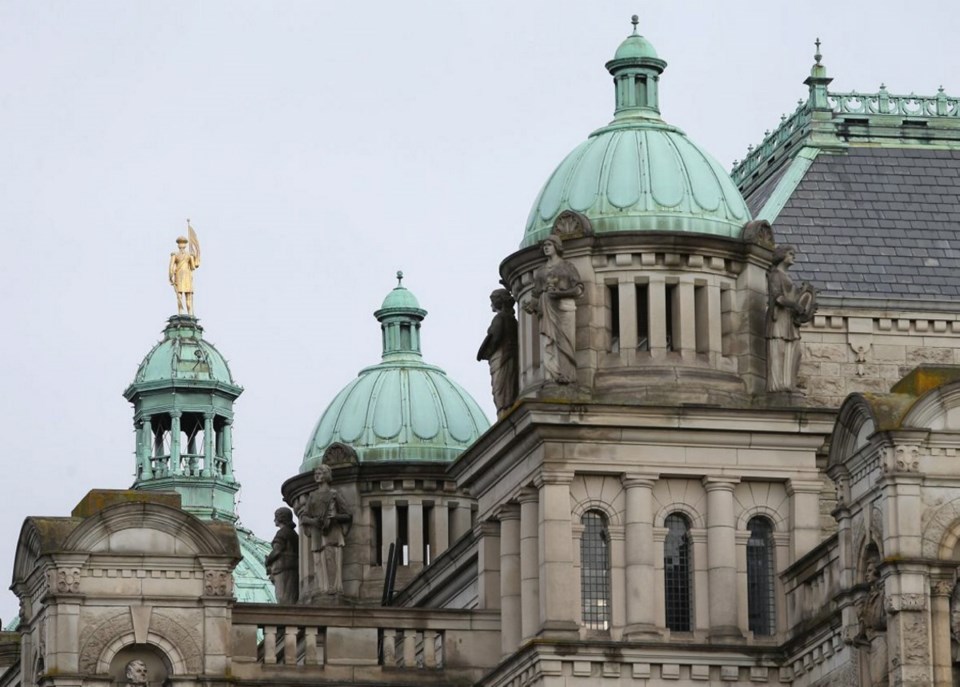British Columbia’s taxpayers will pay more than $11.3 million in severance to former B.C. Liberal appointees fired by the new NDP government.
The government confirmed Friday that it will pay $11,332,206 to 133 former employees, including political advisers, ministerial assistants and communications officials.
Once inflation is taken into account, the figure is less than the $9 million that went to ex-NDP appointees when the Liberals took power in 2001, the government said.
Within three months of that election, the Liberals had terminated about 170 non-unionized staff members.
Those employees, hired by the former NDP government, included political advisers, clerks and secretaries. All 40 people in the premier’s office lost their jobs.
Some political appointments come with fixed-year contracts, which means the new government might have to pay them out.
Public-sector employees are entitled to up to 18 months of severance. They might have to repay some of it if they get a new job within the severance period.
Severance entitlements vary by age, service time and salary.
The new NDP government said the transitional firings have been completed.
Finance Minister Carole James described the severance paid to Liberal appointees as a one-time cost that comes with a change in government. “It’s nothing unusual to see those kinds of changes. These are not ongoing costs, these are one-time costs to ensure the staff will carry out the new government’s direction on behalf of the people of this province.”
She said it’s not a wholesale change — pointing to the many deputy ministers who kept their jobs and others who were promoted from within the civil service to new positions.
The severance total released Friday does not include the amount due B.C. Hydro’s former president and chief executive officer, Jessica McDonald, who was fired by the Crown corporation’s board on Friday.
James could not say how much severance McDonald would receive.
“We put a new board chair in [Thursday]. We expected there would be some changes. Certainly, the public has had lots concerns about the direction B.C. Hydro has been going,” she said, giving high rates as an example.f and dedicated service to B.C. Hydro and recognizes the profound impact her vision, innovative thinking and unwavering commitment to excellence has had, and will continue to have, on the company.”
So long and thank you @bchydro. It's been an honour working amongst you for the last 3yrs. Keep flying. #talented pic.twitter.com/TFSL7k8JuY
— jessica mcdonald (@jmcdonaldyvr) July 21, 2017
McDonald received $528,342 in total compensation in 2016-17.
Chris O’Riley, deputy chief executive officer, is to replace McDonald as president. The Crown corporation declined comment on who will fill the CEO position.
The B.C. Hydro board said in a statement that it “wishes to express its sincere gratitude to Ms. McDonald for her exemplary leadership of and dedicated service to B.C. Hydro and recognizes the profound impact her vision, innovative thinking and unwavering commitment to excellence has had, and will continue to have, on the company.”
McDonald previously served as head of the B.C. Public Service and deputy minister to Gordon Campbell when he was premier.
Her removal from B.C. Hydro came one day after Premier John Horgan named Kenneth Peterson chairman of B.C. Hydro. Peterson replaces Brad Bennett, who was one of B.C. Liberal Leader Christy Clark’s election campaign advisers and president of real-estate investment firm McIntosh Properties.
Peterson is a former CEO of Powerex, the marketing and trading subsidiary of B.C. Hydro. Since 2006, he has served as a trustee of North American Reliability Corp., a non-profit group that oversees the reliability of power systems.
Energy Minister Michelle Mungall said the decision to fire McDonald was made by the B.C. Hydro board.
“We just appointed a new chair,” she said. “He was given the direction to assess any changes that need to be made, so clearly he did that job and that’s about as far as I can comment, because that’s about as far as I know.”
The NDP promised during this year’s election campaign to freeze B.C. Hydro rates and conduct a review of the Crown corporation to look for “inefficiencies, fiscal mismanagement and cost savings that don’t impact services.”
The NDP’s accord with the B.C. Green Party, which allowed them to form a minority government, promises that the government will “immediately refer the Site C dam construction project to the B.C. Utilities Commission” to review its economic viability.
Mungall said the government remains committed to the review, but exactly when and how that will happen remains unclear.
“We are a government that is just a few days old, so we’re just getting up and running,” she said. “We don’t even have emails yet. Many of us don’t even have a full complement of staff, so we’re just working through some of the foundational things to become government.”



